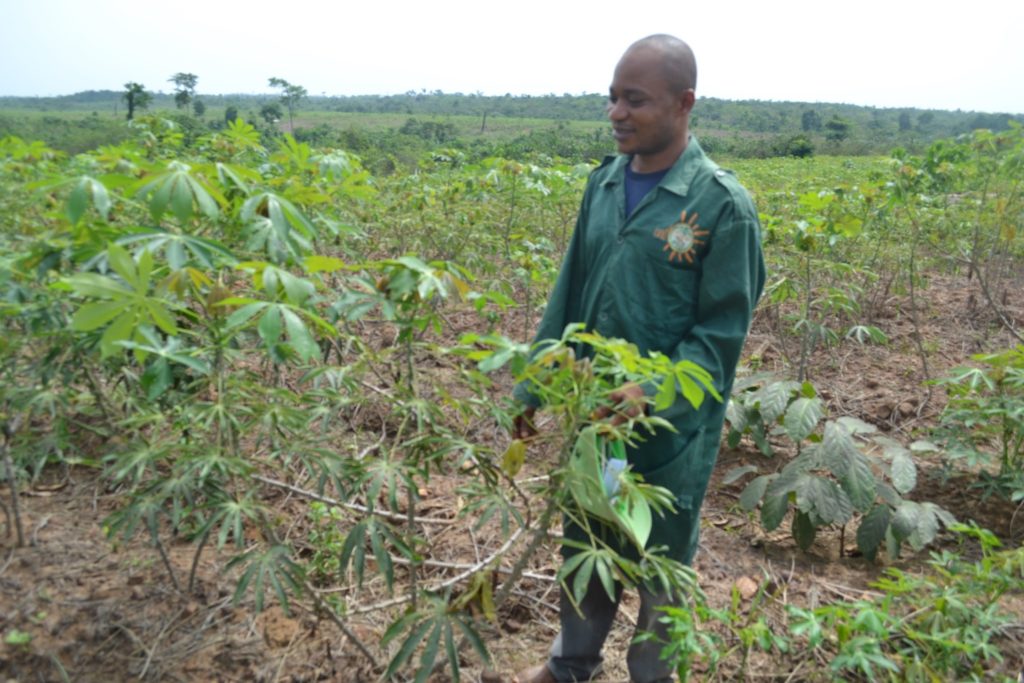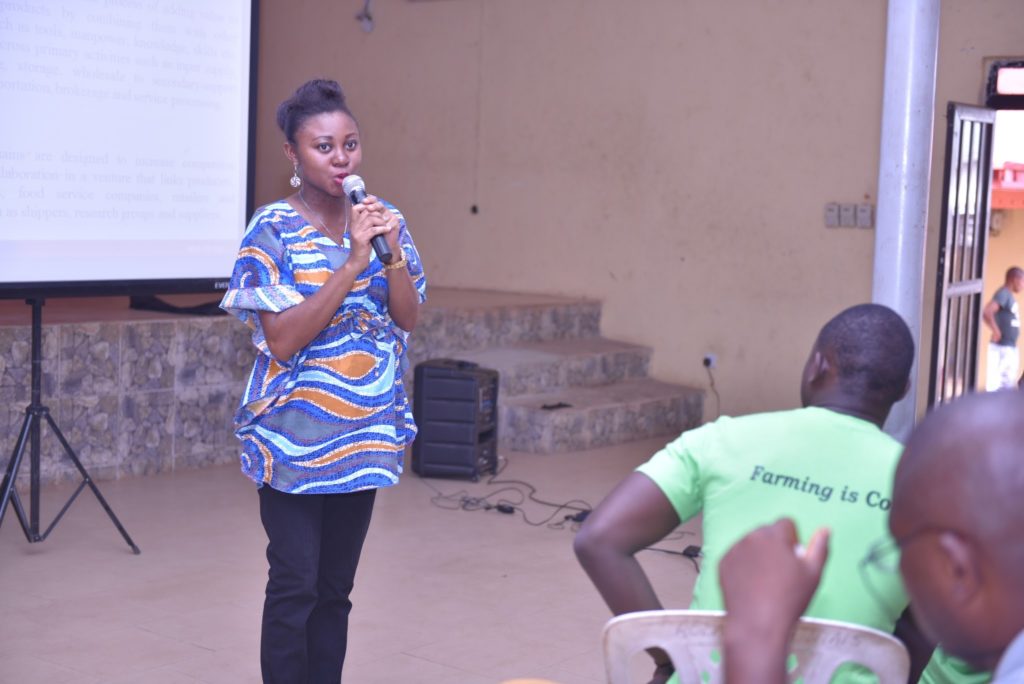
Our work in cassava in partnership with Ondo State Wealth Creation Agency (WECA) and Star Deep Water Petroleum Company, a Chevron partner working with them on the Agbami oil field, has helped farmers improve their practices while strengthening value chain links between farmers and input companies like Jubaili and Notore, but more crucially it has been able to provide a viable means of income where often there is none.
In recognition of the high rate of youth unemployment in the country and to further support the development of the non-oil and gas sectors, this Youth Cassava Enterprise Project in Ondo State shows young graduates improved cassava production practices. The WECA agricultural business centre in Ore, Ondo State, was built on a vast, well secured expanse of land, with over 400ha of farmland on which farmers are trained and crops are grown for sale. Participating farmers on the partnership were trained in cassava cultivation, poultry farming and aquaculture.
“I trained as an accountant at school, but I am a farmer now,” Michael Omosule, one of 40 participating farmers under the PIND-WECA partnership, told us. We met him at the brand new processing unit of the the Ondo State Wealth Creation Enterprise Agency (WECA) Agricultural Business Center, ready for the cassava harvest due to take place in a few months. “There is no work anywhere, and you have to just find something. I didn’t even know anything about WECA before. I was doing some work installing satellites when I found out about the WECA program. I applied, and now I am here.”
Under this partnership, 40 graduates have been equipped with improved business and management skills in commercial agriculture through the Nigerian Agricultural Entrepreneurship Curriculum (NAEC) training; and technical and practical training on agricultural mechanization through demonstration farms. Each farmer was provided with two hectares of land for cassava. This is leading to creation of 40 jobs.
“I wouldn’t have been able to afford the land without this intervention,” Bamidele Ayodele, another of the farmers told us. “It is much too expensive to do on your own. There is even a processing unit, and once I farm I will simply process right here and sell.
Everything I know about farming, I learned from this WECA program. This program has made it easier for me to even want to be a farmer.”

Olayele Olutola Joseph shows us his cassava farm on the Ondo State Wealth Creation Enterprise Agency (WECA) Agricultural Business Center in Ore, Ondo State. Over 40 young people like him benefited from the trainings on cassava, many of whom had no previous experience in farming or were not previously employed
“I studied agriculture in school,” Tola Joseph told us as he made his way through his farm. The ground was uneven, and he was wearing his green overalls. “but even for me the trainings were useful. There are things I did not know, like how to grow cassava effectively and this exposure to a high-yielding variety of cassava with higher starch content. These things make a difference in improving how much money you make from your yield.”
“It is here that I learned that there are so many different varieties of cassava,” Osotule added, “and we know now that the ones that our parents used to grow weren’t the lucrative kinds. With this knowledge, I know I can make a lot of money!”
The skills these young farmers have learned have been invaluable. Not only have these farmers been able to gain access to value chain actors like the International Institute for Tropical Agriculture (IITA) and input companies for herbicides and fertilizers, they have used their own initiative to sell their skills to other farmers outside their farm.
Olabomi Abiodun, the acting Farm Manager of the WECA farm and part of the team that trained these young farmers, enthused about the farmers’ entrepreneurial approach.
“One of the farmers has been able to start work on another farm in Iju-Alaaye, a few hours from here. About half of the farmers we trained in this batch are now part of Fadama, the Federal Government-World Bank poverty alleviation project aimed at farmers, and many of them have even started acting as consultants to local farmers in the surrounding area.”
All 40 of the graduates have planted and are now awaiting harvests. PIND, Chevron Star Deepwater and WECA are excited to see what these farmers do with their businesses and their earnings, and the impact they will make on their community. Mr. Abiodun is optimistic that this partnership will be key to addressing the state’s youth unemployment challenges, and serve as a model for boosting income in the state.
“The demand for this program is great; currently I have 2,000 applications on my desk, and that is just for graduates! We need to spread this program to more people. We have the capacity and the links, all we need now is continuity. Let us promote Agro-Dollars, not Petro-Dollars!”

PIND’s Market Development Officer for cassava value chain, Faith Soya speaks at a training in Akure, Ondo State
